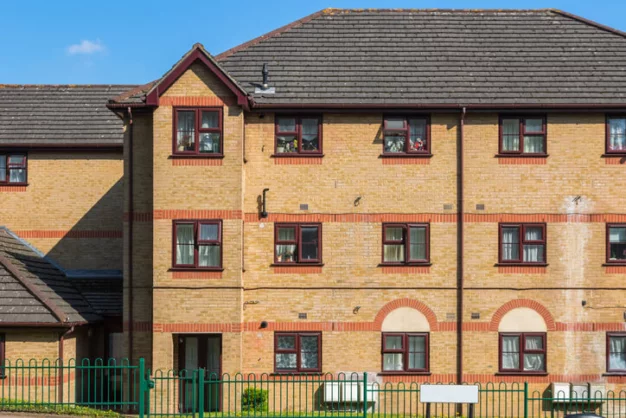Case Reiterates Local Authorities should follow Allocation Scheme

Contact
Table of Contents
R (on the application of Kukhtyak) -v- London Borough of Hounslow [2023] EWHC 2914 (Admin)
This sad case concerned an elderly couple that fled Ukraine following the Russian invasion. Their daughter resided in a two bedroom council property owned by the London Borough of Hounslow, with two daughters of her own, the Claimant’s granddaughters. As a result of a neighbour’s dog attacking and killing their dog, and medical issues rendering the house unsuitable for the Claimant’s granddaughters, the family was already on the London Borough of Hounslow’s allocation scheme to be transferred, and were in the second highest priority band, with a requirement for a three-bedroom property due to the granddaughter’s medical issues. The Claimant’s daughter, Ms Nowosielska, was the tenant of the council property and so was the named applicant for the housing application.
Following the Russian invasion, the Claimant and her husband left Ukraine and moved in with her daughter. The Claimant suffers from complex health conditions herself. Her husband had been diagnosed with pancreatic cancer and had just started chemotherapy in Ukraine. His treatment was interrupted as a result of moving countries, and he was subsequently told that his cancer would be terminal. The Claimant’s daughter is the main carer for her mother and step-father, helping them with various aspects of care, as well translating for them as they do not speak English.
The Claimant asked that she and her husband be added to her daughter’s housing application. They were not classed as “immediate family” under the London Borough of Hounslow’s allocation scheme, and so were not automatically eligible to be included. Instead, they sought to rely on a provision that allowed those with an exceptional need to live with an applicant to be included on their application. There was a further provision in the London Borough of Hounslow’s policy that allowed for complex cases outside of the allocation scheme, for houses with multiple, complex needs, to be referred to an “Exceptional Needs Referral Panel” (ENRP). The ENRP would consider whether to exercise the council’s discretion in relation to the application.
The London Borough of Hounslow stated that they would consider accepting a separate application from the Claimant and her husband for their own property, but would not include them on Ms Nowosielska’s housing application. They refused to consider referring the case to the ENRP as they had offered an alternative solution.
The Claimant challenged these two decisions on the basis that:
- the decisions were irrational or inadequately reasoned;
- the council had failed to follow its own policy in failing to refer an exceptional case to the ENRP;
- it was a breach of the Claimant’s article 8 rights and the Defendant had not carried out an impact assessment or justified this breach; and
- the Defendant had failed to make adequate enquiries into the family’s circumstances given that the family had repeatedly requested assessments under the Care Act 2014 from social services but no such assessment had been completed.
The Defendant argued that:
- it had considered all relevant information properly and provided sufficient reasoning in relation to the decisions;
- it was unnecessary to refer the case to the ENRP as they had identified an alternative solution;
- they had followed their housing allocation scheme and it was proportionate; and
- in any event the Claimant was not the applicant for housing and lacked standing to bring a claim for judicial review of the decision.
Recorder Karen Ridge KC, sitting as a Deputy Judge of the High Court held that the Claimant did have sufficient standing to bring the challenge, finding that:
“In this instance, the Claimant, her husband and Ms Nowosielska and her daughters are directly affected by the Defendant’s decisions. In some cases, if one or more claimants are directly affected or otherwise well placed to bring the claim that may mean that others who are not directly affected, or are less well-placed to bring the claim, will lack standing. That is not the case here, all of the family are directly affected.”
In relation to the grounds of challenge, the claim was dismissed on three of the four grounds of challenge. However, the ground that the Defendant had failed to refer the case to the ENRP as it was outside of the allocation scheme was successful, with Ridge J concluding:
“The relevant policy provides that ‘urgent, complex housing cases which are outside the allocations policy’ are considered by the Panel. Having concluded that the case was outside the allocations policy, the Defendant should have asked was it an urgent and complex case. At the point in time that the decision was made, the Defendant had a great deal of information about the family’s needs. The Claimant’s instructing solicitor’s letter of 2 August 2022 contains a number of supporting documents evidencing the family’s various medical conditions and other matters. The matter was urgent by virtue of Mr Khariv’s diagnosis and it was arguably complex due to the family’s multiple health problems and the language and cultural needs.
The reasons given for declining to refer the matter to the ENR Panel are not consistent with a proper application of the allocations policy. The suggestion that there are alternative resolutions does not obviate the need to consider whether the case was urgent and complex and a referral should be made. The whole rationale of the exceptions policy is to cater for those situations which do not fit neatly within the previous allocation categories and to ensure that there is no injustice as a result of genuine applicants in true need falling through the cracks.
I conclude that the decision not to refer the matter to the ENR Panel was irrational for these reasons. The Defendant has not followed its own policy in relation to this aspect of the application and ground 2 therefore succeeds.”
As a result, the challenge was successful, and the Defendant was ordered to consider the case at the next ENRP meeting.
This decision establishes that people affected by an allocations decision that are not the main housing applicant have sufficient standing to bring a claim in relation to such a decision, and reiterates that it is key that local authorities follow their published allocation scheme, in order to ensure that all applicants are treated fairly and equally.
The local authority has sought permission to appeal this to the Court of Appeal and a response on this application is awaited.
Share this article


